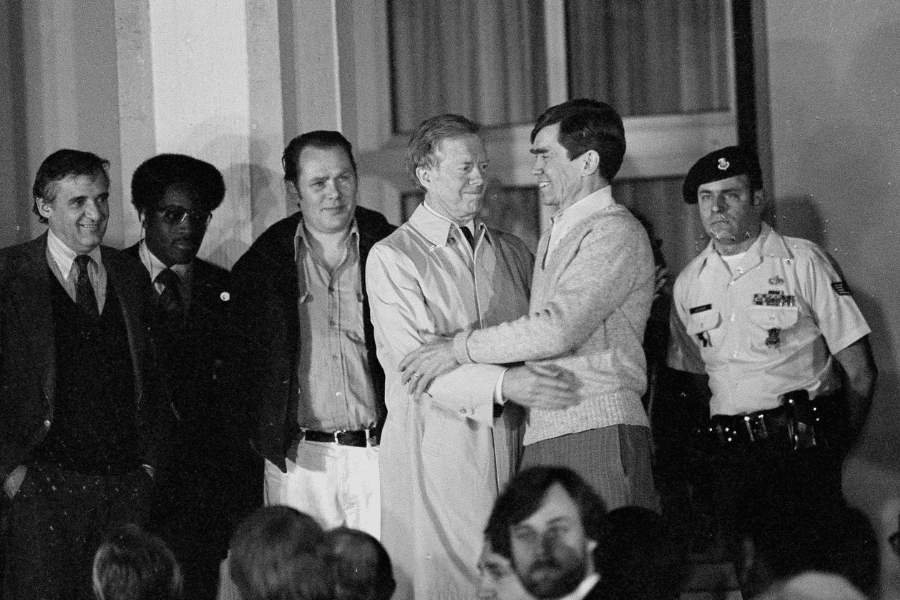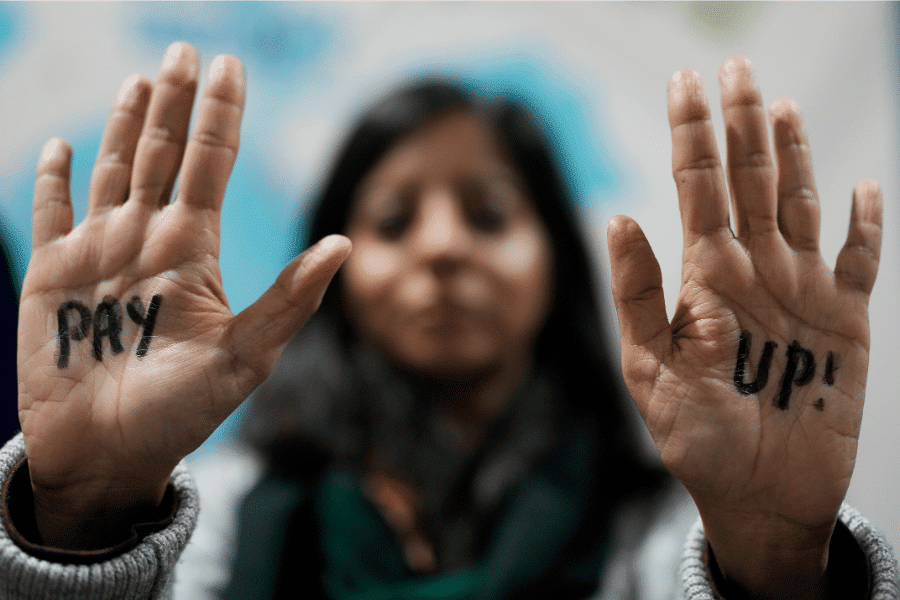
by Susanne Courtney | 28 Jan 2025 | Africa, Education, Politics, Science, Technology
At the United Nations University, researchers and policy makers across the globe work together to solve big problems and share knowledge. Dr. Erick Tambo, an associate academic officer at the United Nations University Vice-Rectorate in Bonn, Germany and head of the...

by Tira Shubart | 9 Jan 2025 | History, Journalism, Politics, United States
Former U.S. President Jimmy Carter will be buried today. Our correspondent remembers meeting the man who put personal integrity over politics and profits. Former U.S. president Jimmy Carter in Wiesbaden, Germany 21 January 1981, greeting the U.S. hostages released...

by Susanne Courtney | 27 Nov 2024 | Decoder Replay, Politics
The island of Barbados has been calling on wealthy nations to fund climate change solutions to mitigate the harm that disproportionately affects small nations. A demonstrator displays hands that read “pay up” during a protest for climate finance at the...

by John West | 12 Nov 2024 | Asia, China, Decoders, History, Politics, Russia
The renegade nation launched ballistic missiles into the sea and sent troops to Russia and rubbish to its southern neighbor. Can Kim Jong Un be controlled? North Korean leader Kim Jong Un, right, and then-U.S. President and current President-elect Donald Trump prepare...

by John West | 23 Sep 2024 | Asia, China, Decoders, Economy, Politics
Vietnam has long had to dance between powerful allies and enemies. That’s left it poised to maneuver in the political chaos that now swirls around it. The Vietnam flag waves behind a screen of bamboo. (Illustration by News Decoder) This article was produced...





